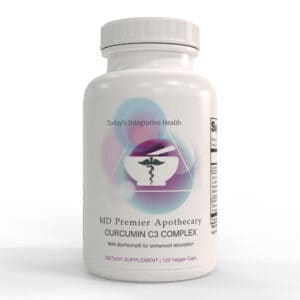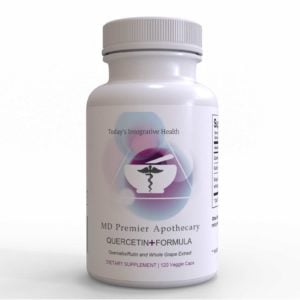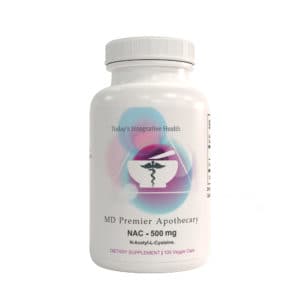The future of healthcare is in practitioners who take time to listen to their patients, uncover the root causes of illness, and then treat them accordingly. Integrative doctors work hard to help their patients obtain optimal health, and they use many different healing modalities to help their patients. Integrative doctors often use botanical medicine to help alleviate their patients’ symptoms and help heal their root causes. At Today’s Integrative Health, Dr. Leo and Dr. Rosenberg enjoy using botanical medicine to treat many of their patients.
What Is Botanical Medicine?
Instead of immediately turning to the use of pharmaceutical drugs, many integrative doctors use some form of botanical medicine, commonly referred to as herbal medicine. Botanical medicine includes the use of plants (or plant substances) to prevent or treat disease. For many centuries, cultures throughout the world have used plants, or plant-based treatments, to promote healthy bodily functions and to treat illness. The term botanical medicine is used because it can include parts of plants that are not limited to only herbs. Botanical remedies can also be given in the form of tablets, capsules, extracts, tinctures, and teas. Plants or plant extracts can be used topically or sometimes taken internally.
Some practitioners will recommend incorporating spices and herbs into your daily cooking as a way to boost your nutrition and herb intake. When using spices and herbs in this fashion, patients can take advantage of their benefits in an easier way. For example, people in India generally have one of the lowest rates of Alzheimer’s disease in the world, and they use the spice turmeric in their dishes daily. When increasing the type and amount of spices and herbs in your food, you can boost nutrition and flavor while you decrease inflammation, and help your body all at the same time.
What Are Popular Botanicals?
You’ve probably used botanicals over the years for medicinal purposes without even knowing it. Many people drink mint tea for nausea, use aloe vera for cuts and burns, and chamomile tea for upset stomachs. Some of the most popular botanicals used in the United States include:
- Aloe vera
- Chamomile
- Echinacea
- Evening Primrose
- Feverfew
- Garlic
- Ginger
- Gingko
- Ginseng
- Goldenseal
- Milk thistle
- Saw palmetto
- St. John’s Wort
- Valerian
Practitioners can use botanical medicine alone or in combination to increase effectiveness. When recommending herbs, the practitioners often take different factors into account including the variety and species of the plant, how it was grown, how it was processed and stored, the habitat, and whether or not the plant may have been exposed to any contaminants. Depending on the patient’s unique symptoms, they will recommend an herb or botanical compound that may contain a wide variety of botanical medicine.
What Is Botanical Medicine Used For?
Botanical medicine has been used for centuries to treat various health concerns and conditions. Allergies, asthma, cancer, chronic fatigue, eczema, fibromyalgia, irritable bowel syndrome, migraines, premenstrual syndrome, rheumatoid arthritis, and other many different health issues may respond positively to botanical medicine. Some of the most common botanicals and their uses include:
- Aloe–typically used topically for sunburns, burns, skin inflammation or irritation.
- Ginkgo biloba–used in traditional medicine to treat poor memory as well as circulatory disorders.
- Garlic–ingested to treat infections, colds, and possibly reduce blood pressure and cholesterol.
- Ginger–ingested to treat motion sickness, nausea, and act as an anti-inflammatory.
- Kava kava–ingested to elevate mood, enhance wellbeing, and promote a feeling of relaxation.
- St. John’s Wort–ingested to treat anxiety and depression with fewer side effects than prescription antidepressants.
- Valerian–ingested to treat insomnia, anxiety, and promote relaxation.
- Echinacea–ingested to stimulate the immune system and promote the body’s natural immunity.
Not only can botanical medicine help treat health conditions, it may also help in some cases to prevent them. When using botanical medicine, it’s best to use it under the supervision of a knowledgeable practitioner. Some herbal medicines may potentially interact with certain prescription medications or worsen certain medical conditions.
Let Our Office Help You With Your Healthcare Needs
If you’ve been dealing with unwanted health issues without resolution from your doctors, don’t suffer any longer. Dr. Leo, Dr. Rosenberg and our team love helping our neighbors in Rockville, MD, and surrounding areas. We are located at 6321 Executive Blvd, Rockville, MD 20852, in the Executive Office Park. Call us today to schedule your first appointment and get on the road to optimal health!
Related Products
-
 MDPA Curcumin C3 Complex (120 Capsules)$56.00 — available on subscription
MDPA Curcumin C3 Complex (120 Capsules)$56.00 — available on subscription -
 MDPA Quercetin + Formula (120 Capsules)$47.00 — available on subscription
MDPA Quercetin + Formula (120 Capsules)$47.00 — available on subscription -
 MDPA NAC – 500 mg (100 Capsules)$28.00 — available on subscription
MDPA NAC – 500 mg (100 Capsules)$28.00 — available on subscription










